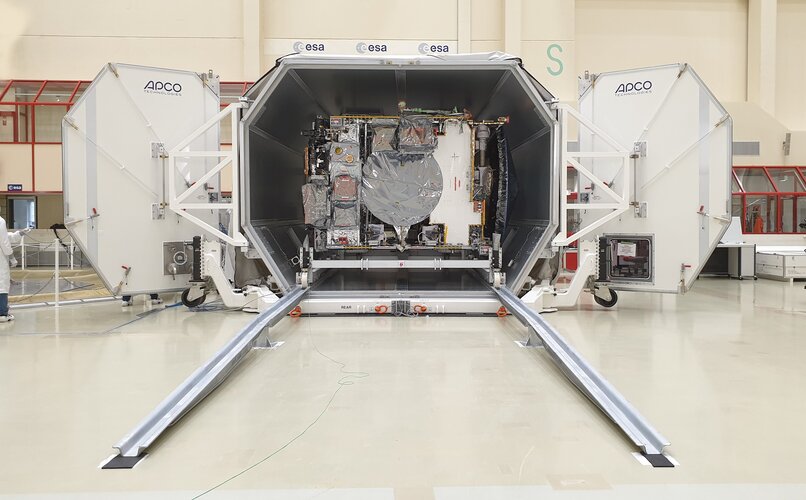Juice will remain at ESTEC until July, before being transported to Toulouse for its final round of tests. From there it will travel to Europe’s Spaceport in French Guiana, to be launched on an Ariane 5 rocket next year.
Once in the Jovian system the mission will make detailed observations of the giant gas planet and its three large ocean-bearing moons – Ganymede, Callisto and Europa – with a suite of remote sensing, geophysical and in situ instruments. The mission will investigate the emergence of habitable worlds around gas giants and the Jupiter system as an archetype for the numerous giant exoplanets, now known to orbit other stars.



